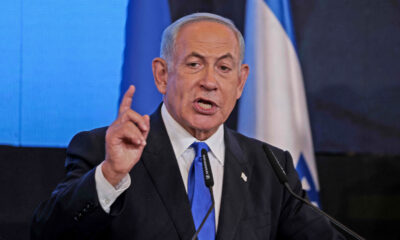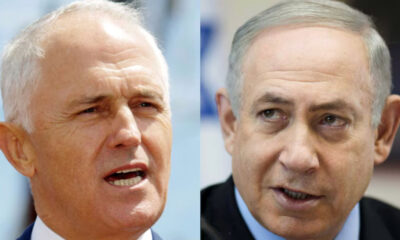International
Hezbollah enters new phase in war as Netanyahu insists on dismantling its structure
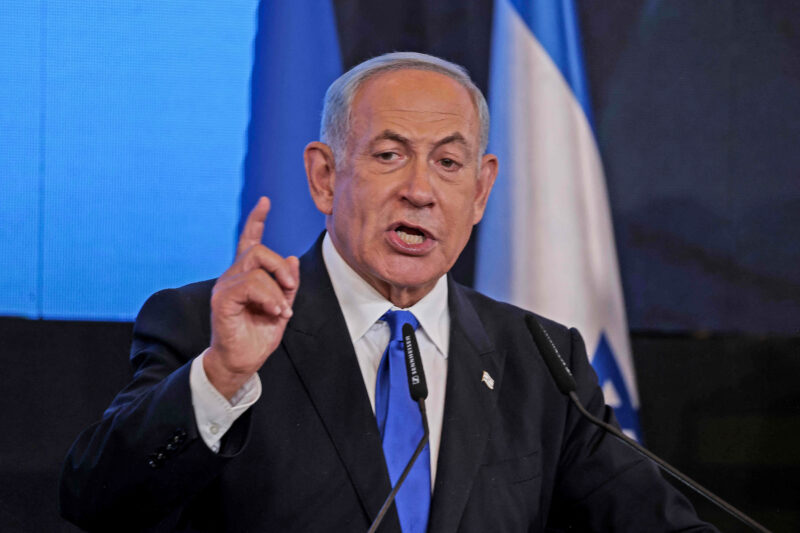
Hezbollah enters new phase in war as Netanyahu insists on dismantling its structure
BEIRUT: Hezbollah confirmed that it has “no option in Lebanon except for the realities imposed by its members in the field, and anything else is betting on an illusion.”
MP Hassan Fadlallah, a member of Hezbollah’s parliamentary bloc, said in a press conference that “Israel’s war on Hezbollah aims to eliminate the resistance, wipe it out from the region, and subjugate Lebanon.”
He said that the enemy “has been planning this war for years and has adopted a scorched-earth policy along the borders, attempting to create a buffer zone to annex the area south of the Litani, which the resistance will thwart.”
Fadlallah said that the party “has entered a new phase of resisting aggression. We are operating on three fronts, the first being in the field, and so far, the enemy has not managed to take control of or settle in any village. Parliament Speaker Nabih Berri and Prime Minister Najib Mikati are negotiating with international envoys to reach a ceasefire, and we are closely following this matter with Berri.”
Fadlallah refused to confirm or deny reports circulating in the south about Hezbollah capturing Israeli soldiers. He simply said: “If any Israeli soldier is captured, the resistance will announce it through its statements.”
On Thursday, the sounds of airstrikes and artillery fire drowned out any diplomatic talk paving the way for a ceasefire.
Israeli Prime Minister Benjamin Netanyahu renewed his escalatory stance, stating Israel’s intent to “destroy all of Hezbollah’s military structure, which has been built over two decades,” and that his goal “in Lebanon is to return the northern residents to their homes and dismantle Hezbollah’s military structure.”
A German Ministry of Defense spokesperson on Thursday told Reuters that “a German warship that operates as part of UNIFIL’s peacekeeping mission intercepted a drone off the Lebanese coast.”
He said that the drone “fell into the water,” and caused no damage to the ship.
The spokesperson said that “the origin of the drone brought down by the air defense system is unknown,” adding that “the warship, known as Ludwigshafen am Rhein and deployed as part of the UN’s peacekeeping mission in Lebanon, is continuing its duties.”
Several UNIFIL positions, as well as the headquarters’ watchtower, were subject to Israeli hostilities, in which several peacekeepers were injured.
READ ALSO:
- Refinery increases Dangote’s wealth to $28bn, now 65th richest worldwide
- Heavy shooting in FCT as task force confronts kidnappers
- Falana tackles Agbakoba over EFCC legal status
The goal of the attacks was to make UNIFIL peacekeepers evacuate their positions in the Lebanese border area and relocate 5 km north. However, the UN strongly rejected the matter and condemned the attacks.
UNIFIL peacekeepers at a position near Kafer Kela on Wednesday observed “an Israeli Merkava tank firing at their watchtower, destroying two cameras and damaging the tower.”
In an official statement, UNIFIL said: “Yet again we see direct and apparently deliberate fire on a UNIFIL position.”
Meanwhile, evacuation threats were sent on Thursday to Lebanese in diplomatic, media and residential buildings in Beirut, Bekaa and the south.
The evacuation warning messages were received by workers in a Beirut building housing offices of the Al-Jazeera news network and the Norwegian Embassy, the Markazia Suites hotel, and buildings in the vicinity of Starco Center, which includes ministries and company offices.
Evacuation warnings were also sent to workers in the main Hamra street next to the American University of Beirut’s campus, including the Commodore Hotel, where foreign journalists usually stay.
A judge at the court of audit received a similar message.
After the army’s investigation of the source of the warnings, it appeared that the calls received on people’s phones were “fake,” according to a security source.
The source considered that “all are rumors other than the warnings issued by the spokesperson for the Israeli army, Avichay Adraee, on his social media account, which include maps specifying the targets, remain inaccurate, especially the phone calls received by citizens, officials, mayors, judges, embassies and media offices.”
On Thursday, Adraee issued a series of urgent warnings to residents in northern Bekaa to evacuate before attacking the targeted areas less than an hour later with airstrikes.
Adraee’s warnings included areas in the south, especially the Tyre region.
Israeli airstrikes continued in the border area, particularly in the areas of Tyre, Nabatiyeh, Iqlim Al-Tuffah and Jezzine, reaching the eastern sector with the shelling of Shebaa. The airstrikes focused on the northern Bekaa region, up to the border with Syria.
In a series of statements, Hezbollah said it had repelled Israeli forces in Labbouneh Heights and the Kfarkela and Odaisseh axes.
Adraee claimed that “a Hezbollah battalion commander, Hussein Mohammed Awada, was eliminated in the Bint Jbeil area and that he was responsible for launching shells toward Israeli territory.”
Hezbollah enters new phase in war as Netanyahu insists on dismantling its structure
International
15 Killed as Peruvian Military Helicopter Crashes During Flood Relief Mission
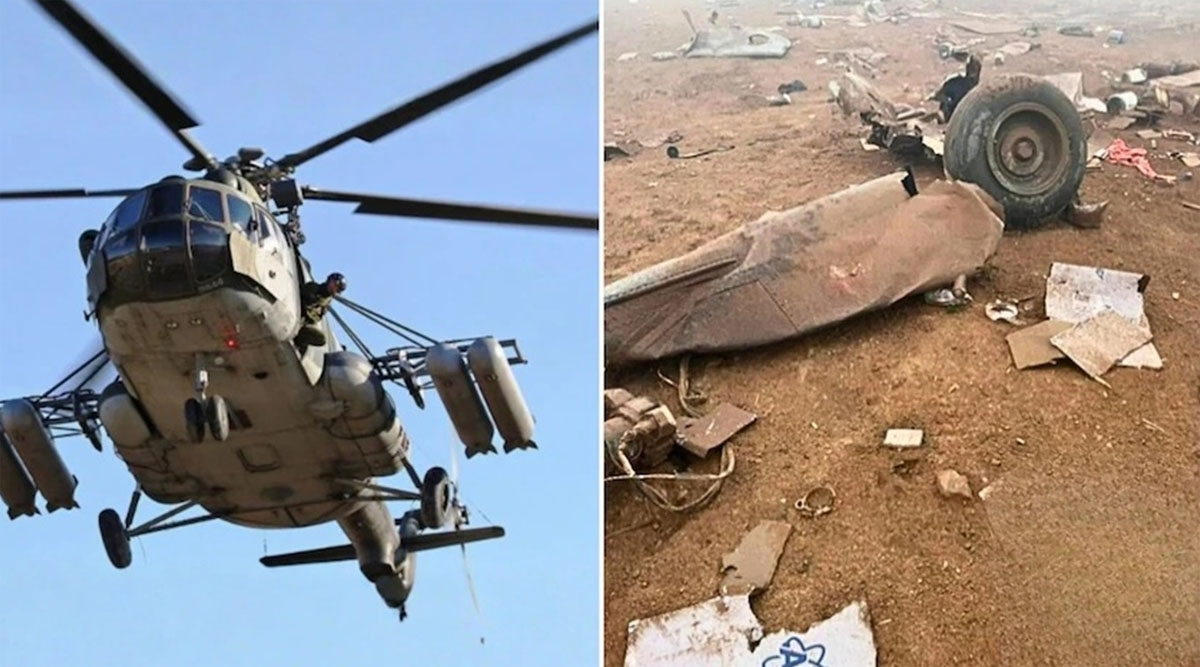
15 Killed as Peruvian Military Helicopter Crashes During Flood Relief Mission
At least 15 people, including seven children, were killed after a Peruvian Air Force Mi‑17 helicopter crashed on Sunday while carrying out a flood relief and rescue mission in the Arequipa region of southern Peru. The helicopter was part of a humanitarian assistance operation responding to severe flooding and landslides that have damaged homes, roads, and infrastructure across the region.
The Mi‑17 helicopter, carrying 11 passengers and four crew members, vanished from radar while flying from Pisco toward the coastal town of Chala Viejo in Caravelí Province. Loss of radio contact triggered an intensive search and rescue operation, involving Peruvian special forces, police units, and Air Force personnel, which located the wreckage on Monday.
Among the victims were seven minors aged between 3 and 17 years old. Adults confirmed dead include Colonel Javier Nole Gonzales, Air Force officer Sergio Danner Paucar Centurión, Elisa Bernal Paredes, Zoila Fernandez Medina, Luis Cárcamo, Kamila Jove, and Leiner Huamán, along with other passengers whose identities are being verified. All four crew members perished in the crash.
READ ALSO:
- Nigeria Allegedly Paid Boko Haram to Free Abducted Schoolchildren, Teachers – AFP Report
- Ijebu Ruling House Appeals to Tinubu to Resolve Awujale Stool Deadlock
- Human Rights Lawyer Says Amupitan’s INEC ‘Failed Woefully’ in FCT Election
The Peruvian Air Force (FAP) described the incident as a “tragic accident” and expressed its deepest condolences to the families of the victims. An Accident Investigation Board has been activated to determine the exact cause of the crash, including the possibility of mechanical failure, adverse weather conditions, or operational challenges.
This tragedy comes amid one of the most severe flood emergencies in Arequipa in recent years, with heavy rains causing rivers to overflow, landslides, and forced evacuations. The helicopter’s mission was intended to provide emergency relief, transportation of personnel, and logistical support to affected communities. Authorities warned that the loss of the aircraft and personnel may impact ongoing rescue operations.
Local officials and disaster response teams continue to assist flood-affected families, providing temporary shelters, food, and medical aid. Observers noted that the crash underscores the risks faced by rescue teams operating in disaster-prone regions and highlights the need for enhanced aviation safety measures in extreme weather conditions.
15 Killed as Peruvian Military Helicopter Crashes During Flood Relief Mission
International
Iran Threatens ‘Ferocious’ Retaliation as Trump Weighs Military Action

Iran Threatens ‘Ferocious’ Retaliation as Trump Weighs Military Action
Iran has warned that it would respond “ferociously” to any military attack by the United States, raising fears of a wider regional conflict as Donald Trump considers possible strikes amid renewed tensions over Tehran’s nuclear programme.
The warning was issued on Monday by Iran’s Foreign Ministry as Washington confirmed that indirect nuclear talks with Tehran would resume on Thursday in Geneva. The escalating rhetoric from both sides has coincided with heightened US military deployments in the Middle East and growing diplomatic anxiety across the region.
Trump said last week that he was weighing a limited military assault if Iran failed to reach an agreement within a narrow timeframe, warning that Tehran had at most 15 days to make a deal. Iran responded by stressing that any strike—regardless of scale—would be treated as an act of aggression.
“And any state would react to an act of aggression… ferociously. That is what we would do,” Iranian Foreign Ministry spokesman Esmaeil Baqaei said.
Iran has indicated it is preparing to submit a draft proposal on its nuclear programme to mediators in the coming days. The talks, being conducted indirectly through Oman, follow two previous rounds of negotiations held in Switzerland.
READ ALSO:
Tehran insists its nuclear activities are strictly for civilian purposes, including energy production and medical use. Western governments, however, believe Iran is seeking the capability to develop an atomic weapon, a claim Tehran has repeatedly denied.
Washington has also pushed to expand the talks to include Iran’s ballistic missile programme and its support for militant groups across the Middle East. Iran has rejected those demands, saying only the nuclear issue is open for negotiation.
Iranian Deputy Foreign Minister Kazem Gharibabadi described the resumption of talks as “a new window of opportunity,” but warned that any attack on Iran could trigger a crisis beyond its borders.
“The consequences of any renewed aggression would not remain confined to one country, and responsibility would rest with those who initiate or support such actions,” he said.
Tensions have also been rising domestically, with student protests in Iran resurfacing at the start of a new academic semester. Demonstrators have revived slogans from nationwide protests earlier this year, which were met with a deadly crackdown.
Growing fears of conflict have prompted several countries to issue travel and security advisories. India has urged its nationals to leave Iran, joining Sweden, Serbia, Poland and Australia, as concerns grow that a breakdown in diplomacy could spark a broader confrontation.
Despite the sharp rhetoric, diplomats say both sides remain engaged, with negotiations seen as the last viable option to avert a potentially devastating Iran-US military clash.
Iran Threatens ‘Ferocious’ Retaliation as Trump Weighs Military Action
International
US Adds 19 More Nigerians to ‘Worst of the Worst’ Deportation List

US Adds 19 More Nigerians to ‘Worst of the Worst’ Deportation List
The United States government has added 19 more Nigerian nationals to its “worst of the worst” criminal aliens list, bringing the total number of Nigerians scheduled for deportation to 113. The move targets convicted criminals who have served time in U.S. courts and are deemed a threat to public safety.
According to the U.S. Department of Homeland Security (DHS), the newly listed Nigerians were convicted of serious crimes, including sexual assault on a minor, fraud, assault, drug trafficking, and money laundering. These individuals were arrested by U.S. Immigration and Customs Enforcement (ICE) and will be deported after completing immigration procedures.
A DHS statement highlighted the purpose of the programme:
“The U.S. Department of Homeland Security is highlighting the worst of the worst criminal aliens arrested by U.S. Immigration and Customs Enforcement. Under Secretary Kristi Noem’s leadership, ICE is carrying out deportations — starting with the worst of the worst.”
READ ALSO:
- Gunmen Storm Gbugbu in Kwara, Residents Flee as Panic Spreads
- FG to Launch Monthly Revenue Transparency Dashboards to Improve Fiscal Accountability
- Troops Repel Coordinated Attacks in Borno, Kill 25 Terrorists, Soldier Dies
Among those newly added to the list are Adeolu Solabu, Oladayo Agboola, Chinonso Ochie, Oluchi Jennifer Chimdimma Chime, Samuel Omorodion, Sunday Adediora, Sunday Kunkushi, Mkpouto Etukudoh, as well as Marcus Unigwe, Kehinde James, Blessing Uchanma, Victor Adebisi, Richard Ugbah, Olaniyi Ojikutu, Oluwamuyiwa Olawoye, Okechukwu Amadi, Femi Jolayemi, Anthony Asanya, Izuchukwu Okoye, and Ebele Agbasiele.
This latest addition follows a previous announcement in which 79 Nigerian nationals had already been slated for deportation for offences ranging from fraud, manslaughter, assault, robbery, to drug-related crimes. The combined total of 113 Nigerians reflects the U.S. government’s intensified focus on criminal aliens.
The move has sparked renewed discussion about U.S. immigration enforcement, diplomatic engagement with Nigeria, and the rights and welfare of deportees. Advocates have raised concerns about ensuring due process and humane treatment for those returned to Nigeria, while authorities stress that deportation is a legal measure targeting foreign nationals convicted of serious crimes.
Globally, Nigerians have faced similar deportation measures, including large-scale removals from countries like India, where thousands were repatriated for visa violations or alleged criminal activities. The ongoing deportations underscore the challenges facing Nigerian citizens abroad amid tightened international immigration and law enforcement policies.
US Adds 19 More Nigerians to ‘Worst of the Worst’ Deportation List
-

 Business2 days ago
Business2 days agoDangote Opens Refinery Investment to Nigerians With Public Share Sale Plans
-

 Education3 days ago
Education3 days agoUTME: JAMB Clarifies Position on Hijab During Biometric Capture
-

 Politics2 days ago
Politics2 days agoTinubu Hails Wike as APC Dominates 2026 FCT Area Council Elections
-

 Entertainment2 days ago
Entertainment2 days agoRegina Daniels Takes Delivery of ₦150m 2026 GAC Trumpchi M8 SUV
-

 Politics3 days ago
Politics3 days agoADC Defeats APC to Win First Polling Unit in FCT Area Council Election
-

 Politics2 days ago
Politics2 days agoFCT Council polls: APC Wins Four Chairmanship Seats as PDP Takes Gwagwalada
-
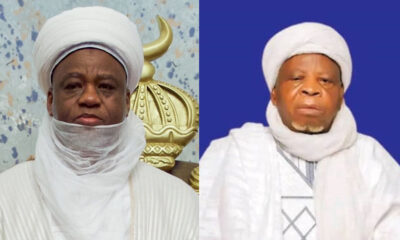
 News2 days ago
News2 days agoYoruba Muslim Group Dismisses Viral Ramadan Date Claim, Reaffirms Sultan of Sokoto’s Authority
-

 Politics2 days ago
Politics2 days agoOpposition Weakens as Another Governor Eyes APC Move









